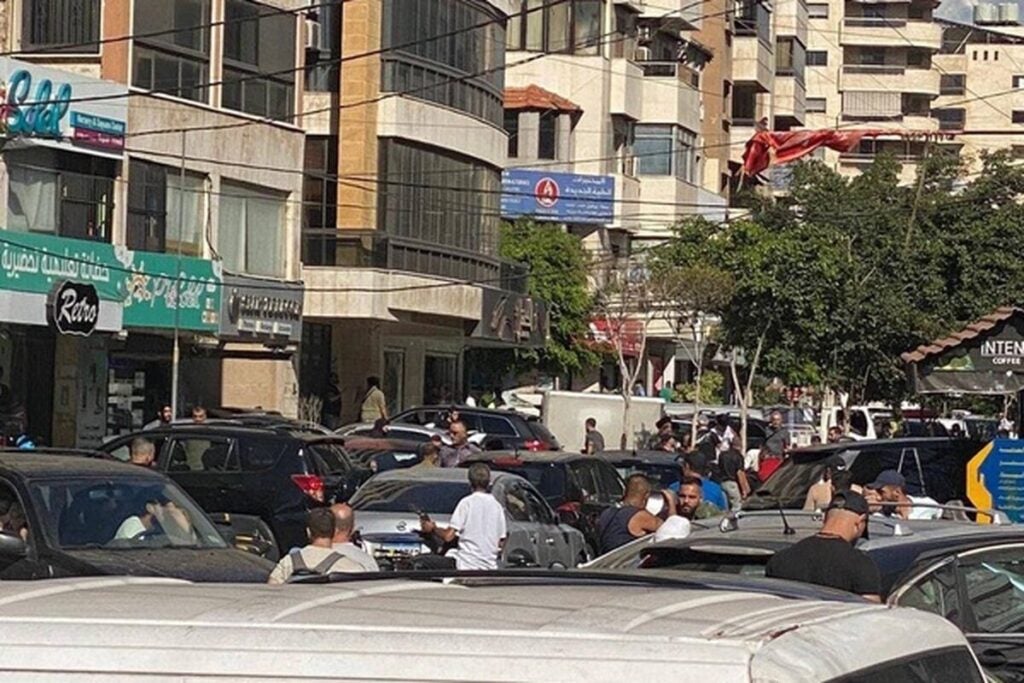Paging Hezbollah: What We Know About the Israel-linked Pager Explosions in Lebanon & Syria
On Tuesday, 17 September, at noon, thousands of portable communication pagers used by Hezbollah militants across Lebanon and in various parts of Syria exploded almost simultaneously, in an unprecedented event. The Lebanese National News Agency, citing the country’s health ministry, reported that at least twelve people, including two young children, were killed and thousands injured as a result of these complex and deadly attacks.
Before the Lebanese people and members of the organization could recover from the shock of these unusual attacks, they were once again shaken by a second wave of hundreds of new explosions about 24 hours later. At least twenty people are reported to have been killed and 450 wounded so far in the second attack.
Hezbollah and its allies said the massive blow to the organization’s communications system was the result of a joint operation by Israel’s foreign intelligence agency, Mossad, and its defense force, the IDF, and vowed to make it pay.
Israel has not publicly claimed responsibility for the attacks, but Defence Minister Yoav Gallant spoke on Wednesday of the ‘excellent achievements’ and ‘impressive results’ of Israel’s military and intelligence services. ‘We are at the beginning of a new era in this war,’ Gallant said, adding that the center of gravity is shifting towards the north.’
Senior US security sources, speaking to media outlets on condition of anonymity, also suggested that Israel was behind the operation. The developments have raised concerns that the growing tensions along Lebanon’s southern border could escalate into a full-fledged war.
On Thursday, in a speech, Hezbollah’s leader Hassan Nasrallah conceded that the pager attack was an ‘unprecedented’ blow but claimed it had not impacted their infrastructure, claiming it remained “robust, mighty, coherent and cannot be shaken by such an attack”. As he spoke IDF jets conducted strikes on Hezbollah assets in south Lebanon.
How Did the Hezbollah Pagers Explode?
Some of the photos on social media from Lebanon show that at least one of the pagers that exploded was the AR924 model from the Taiwanese company Gold Apollo. Brussels-based military and political analyst Elijah Magnier told Al Jazeera that Israel planted between 1 and 3 grams (0.04 to 0.11oz) of pentaerythritol tetranitrate (PETN), a powerful explosive, in each of the Taiwan-made pagers and that the explosion was triggered by a code sent simultaneously to the radios.
It is not clear when and where Hezbollah, which had previously decided to switch to lower-grade technology to avoid Israeli surveillance, acquired the pagers. However, a security source claimed to Reuters that the organization had purchased the radios five months ago.
According to Politico, Gold Apollo stated that the AR-924 model believed to have been used in the initial wave of the attack was manufactured and sold by a Hungarian company called BAC Consulting, which has a license to use its brand name on pagers. The Taiwan-based corporation went on to say, “according to the cooperation agreement, we authorize BAC to use our brand trademark for product sales in designated regions, but the design and manufacturing of the products are solely the responsibility of BAC. Our company only provides the brand trademark authorization and is not involved in the design or manufacturing of this product.”
However, Zoltan Kovacs, Hungary’s Minister of State for Public Diplomacy and Relations, wrote in a post on his X account that “the company in question is a trade intermediary and has no production or operational facilities in Hungary.” “During further investigations, Hungarian national security services are cooperating with all relevant international partner agencies and organizations,” Kovacs added.
The New York Times, citing three intelligence sources familiar with the operation, suggested that the Hungarian BAC Consulting was an Israeli front company and that at least two other fake companies had been set up to conceal this. The report also claimed that the pagers started to be sent to Lebanon in 2022 and that the supply was accelerated after Hezbollah leader Hassan Nasrallah declared that the use of mobile phones was not operationally safe.
Other claims about the explosions include the idea that a software attack caused the pager batteries to overheat and explode. However, battery experts say that it is highly unlikely that the pagers exploded solely due to a wireless signal and that descriptions and videos of the attack do not match the profile of battery explosions.
While investigations into exactly how the incident occurred are ongoing, the evidence, analyses, and allegations so far suggest that this unprecedented attack was a major success for Israeli intelligence and a significant security weakness for Hezbollah. Furthermore, it is all but certain that these waves of strikes will intensify the already complex Middle East in the days ahead.

